How King Charles profits from Merseyside’s essential public infrastructure
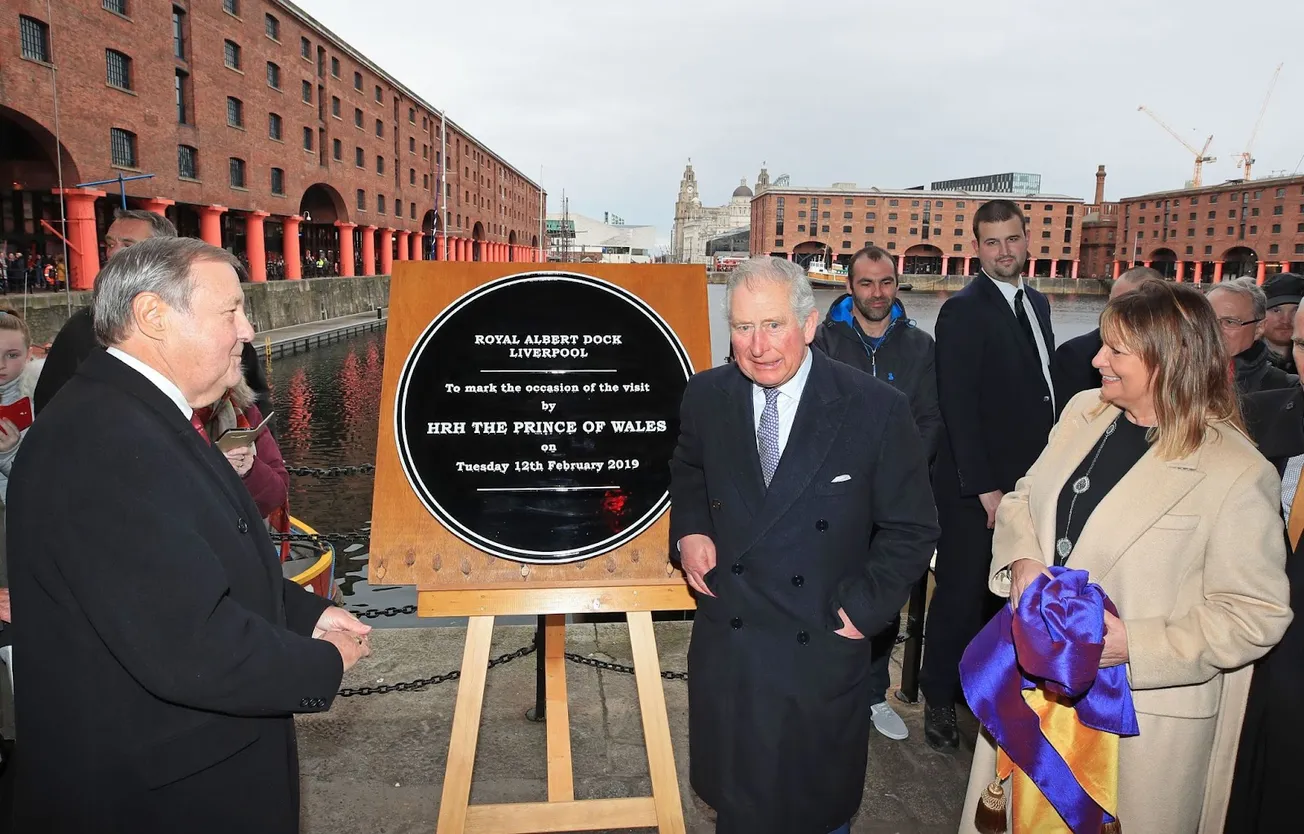
Ferries, cargo ports, even sewage pipes: land obtained in feudal times is still benefitting the crown in the 21st century
Dear readers — we hope you’re having a wonderful Monday so far. Today’s big story concerns the revelations into King Charles’s ownership of the Mersey foreshore – and the cash the people of Liverpool are paying him to use it.
But before diving into this week’s news, don’t forget to check out Saturday’s long read from Laurence. He spent “Mizzy night” in West Kirby, once one of the quietest and most affluent towns on Merseyside, which last week was slapped with a Public Spaces Protection Order to tackle crime and antisocial behavior. He set out to discover if the sleepy coastal village has really become a criminal hotbed, or if the PSPO was more of an overreaction by locals skittish about kids from elsewhere.
“Another entertaining, evocative take on a serious subject,” wrote one of you in the comments. “Great article, well balanced,” wrote another. Check out the full piece below.
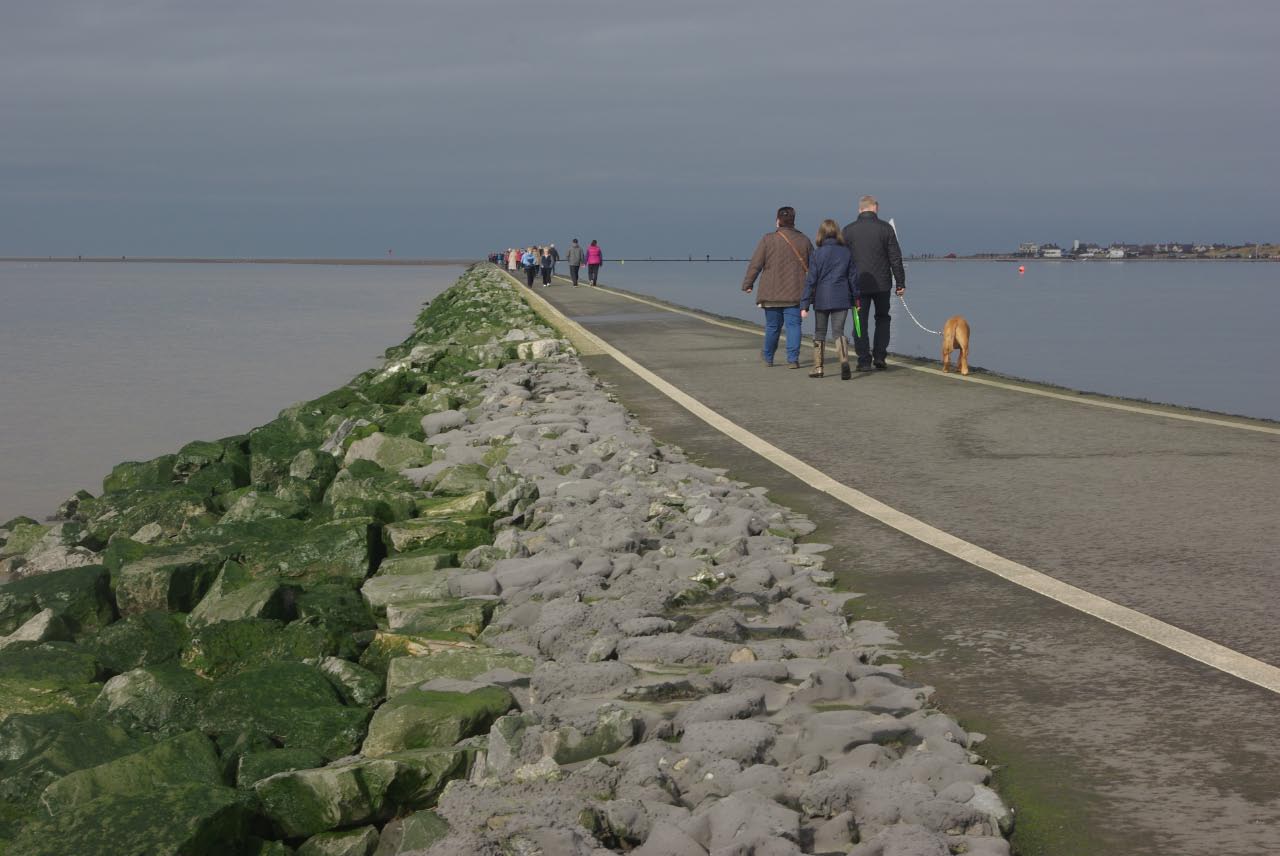
Editor’s note: Those who’ve been anxiously awaiting Part Two of Matt O’Donoghue’s deep dive into the downfall of Coggins Firm will be glad to hear that the shocking tale continues in your inbox this Wednesday, exclusively for paid members. Make sure you don’t miss it: sign up today! For just £7 a month, you’ll get access to our full archive and special subscriber-only stories, like David Lloyd’s fascinating and frustrating essay from last week on Liverpool’s less-than-thriving commercial district. More investigations, culture features and chilling exposés are just one click away.
The big story: How “the lifeblood of the people of Liverpool” helps sustain King Charles
Top line: King Charles has been personally profiting from some of Merseyside’s essential public infrastructure: the ferries, the Liverpool2 cargo port, some of its wind turbines, and even a sewage pipe that’s been discharging wastewater into the river.
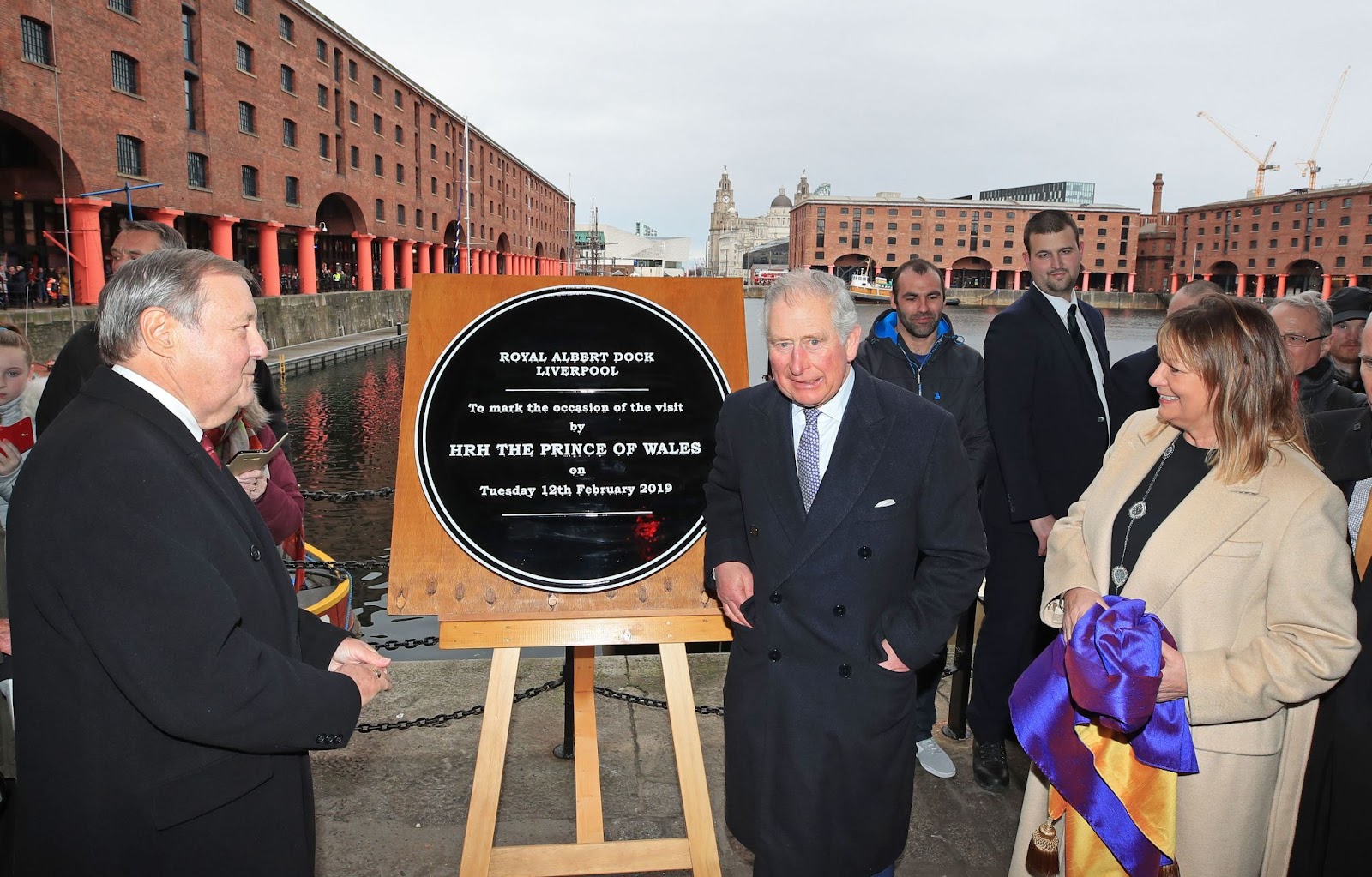
Context: Since the 1207 charter granted by King John officially made Liverpool a town, the relationship between crown and city hasn’t exactly been smooth sailing. Now, a joint exposé over the weekend into the vast property empires of the present monarch and his son Prince William threaten to deepen some scousers’ resentment of the crown.
A blockbuster investigation by Channel 4’s current affairs programme Dispatches and The Sunday Times revealed that the Duchy of Lancashire — the private estate of King Charles — owns the northern foreshore of the River Mersey. This entitles him to levy charges on multiple services affecting people in Liverpool.
The Duchy of Lancaster is only a little younger than Liverpool itself, established in 1265 by King John’s son, Henry III. It covers the coastline from Barrow-in-Furness in the north to the Mersey in the south. Unlike the Crown Estate, the sovereign’s public holdings, the Duchy’s profits do not benefit the Treasury. It is not subject to corporation tax or capital gains tax. Furthermore, King Charles is not legally obliged to pay income tax, and while he voluntarily pays something on the surplus made by the Duchy, the amount has not been made public.
The skinny: The Gerry Marsden ferry terminal on the Pier Head was built in 2012 by the Merseyside Passenger Transport Executive, its £8 million cost partially paid for by the European Regional Development Fund. But according to The Sunday Times, because the pier is above the King’s riverbed, the transport executive has paid the Duchy £130,000 in the last 12 years. The Duchy has inserted a clause in the lease that entitles it to increase the rent if the ferry ever makes a profit.
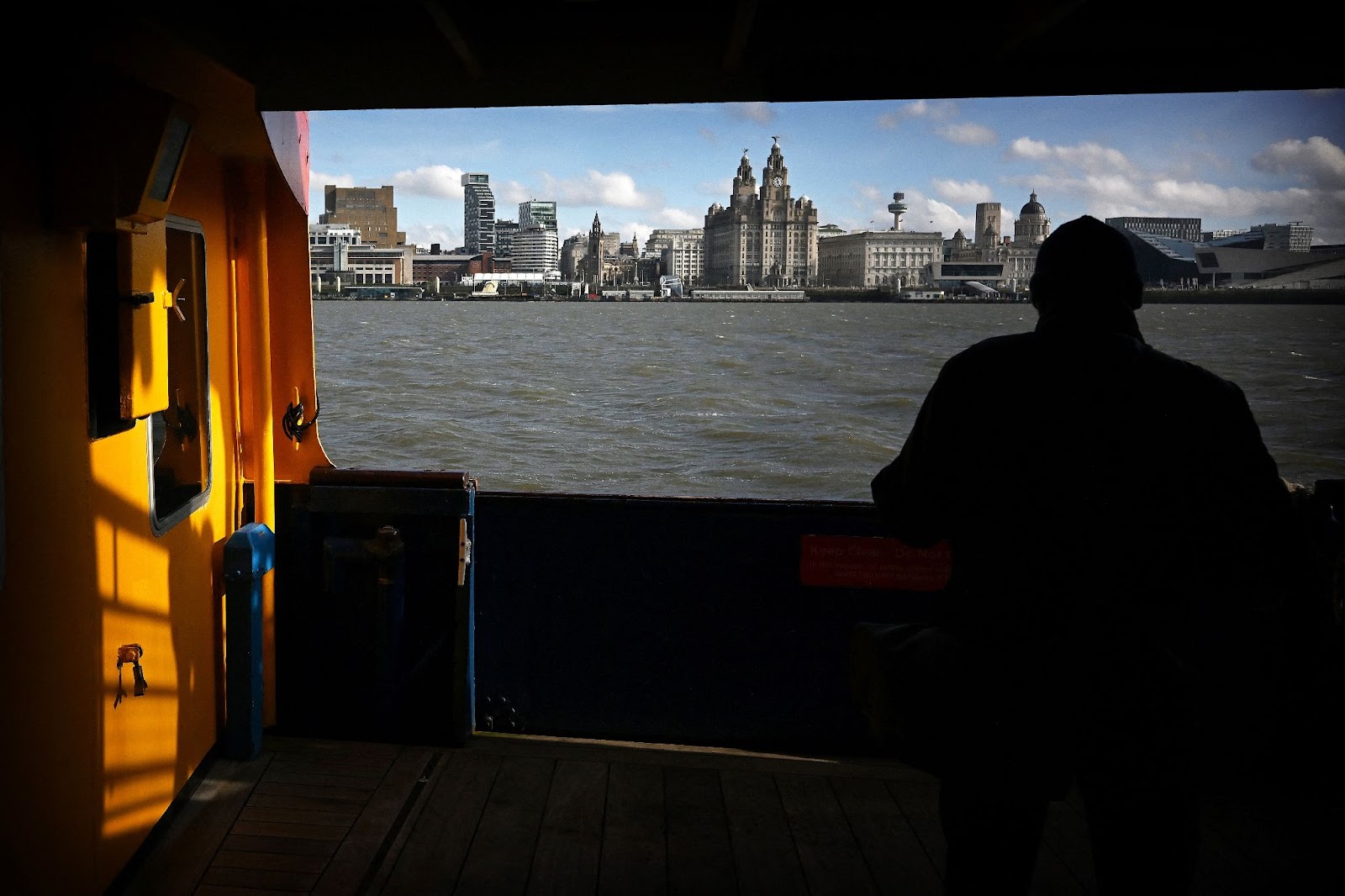
Another source of income for the King is the new Liverpool2 cargo port. Privately owned, the container terminal is the largest of its kind in Europe, handling over a million containers a year. Each time a crane lifts a container across the Duchy’s boundary, which happens thousands of times a day, the monarch earns an extra 30p. Regardless of how many containers cross the boundary, the terminal pays the King a minimum of £150,000 per year.
Then there’s the Mersey Gateway, the six-lane road bridge opened in 2017 to connect Runcorn and Widnes, which cost the taxpayer £600 million to build and now charges drivers a toll. Halton Council must also pay the King for the right to operate the bridge.
Committed environmentalist? Despite King Charles’s reputation as a campaigner for sustainability, the Duchy has also found a way to charge the Mersey Docks and Harbour company for the privilege of operating four offshore wind turbines (raking in some £560,000 since 2008). Beyond Merseyside, the King’s beach tax on wind farms across the UK stands to net his estate a total £28 million, a figure that rises to billions when the Crown Estates’ wind farm revenues are factored in.
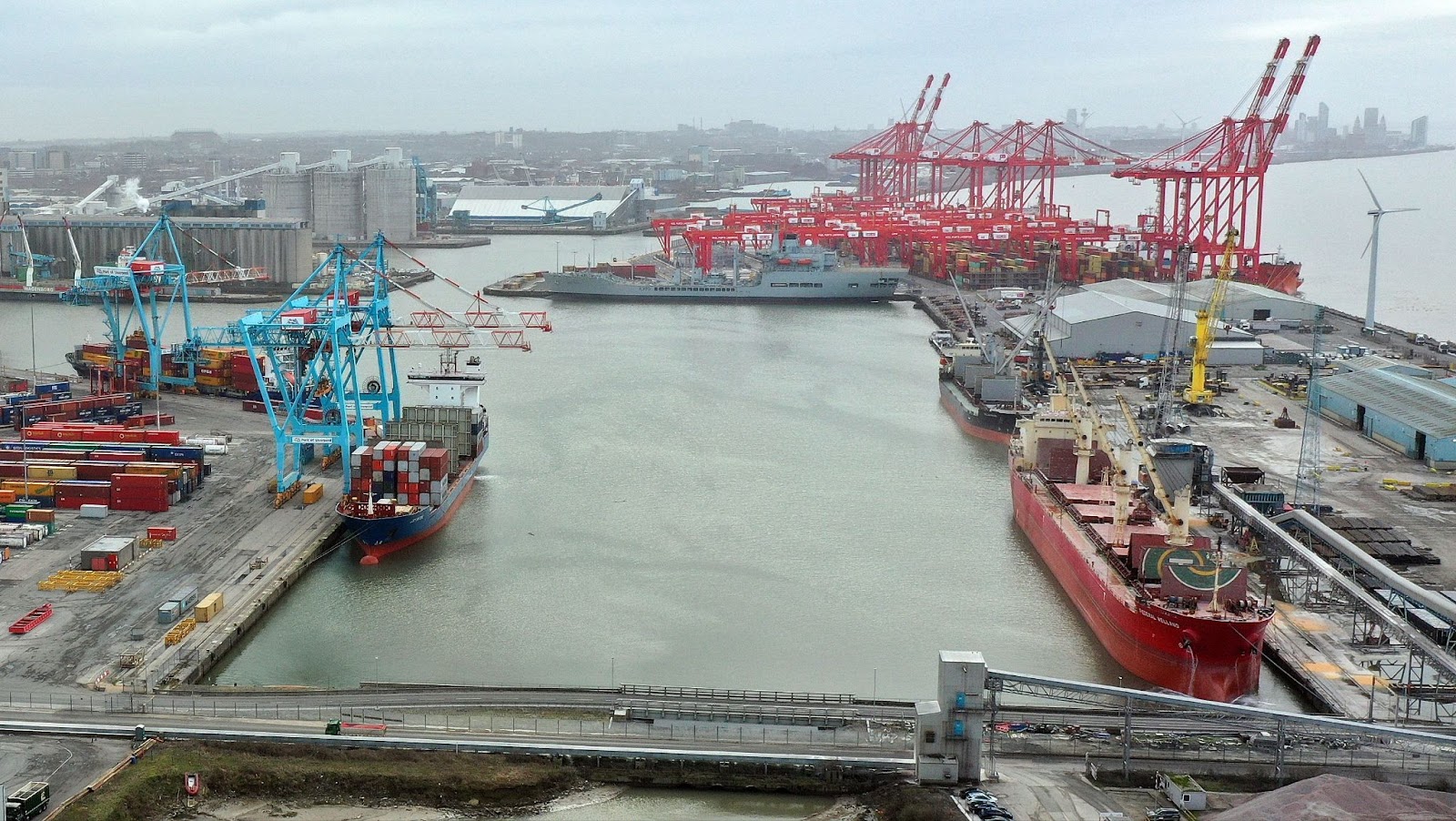
He even makes money on the effluent pumped into the Mersey. An outfall pipe, owned by United Utilities, discharges waste from the sewage treatment works at Sandon Dock into the river near Everton’s new Bramley Moore stadium. United Utilities pay £300 to the King for the pleasure.
Reaction: “This river has been the lifeblood of the people of the Liverpool City Region for centuries,” metro mayor Steve Rotheram told Dispatches. “Surely we shouldn’t have to pay an additional charge, because it’s for the public.”
Rotheram has used the “lifeblood” line before — in March this year, when talking about the ambitious Mersey Tidal Project that will seek to generate clean electricity for 120 years and create thousands of green jobs. In the Dispatches programme, he voiced concerns that the King’s stewardship of the riverbed may mean the project incurs additional charges.
Rotheram, though, called the very existence of the monarchy as a profitable enterprise into question: “There’s a much wider debate about whether kings in the 21st century should be getting money from land that was taken from people in feudal times.”
Bottom line: King Charles and Prince William receive millions from public bodies and charities, including the NHS, state schools, lifeboat stations, and even the armed forces deployed to protect them.
In Liverpool, where football fans have sung over God Save the King and even booed Prince William, this profiteering off the Mersey is bound to inspire more resistance here than elsewhere around the country. The Mersey ferry passengers — interviewed for the Dispatches programme — met the news of the King’s ownership with surprise and disdain. “He’s making money off the poor person, isn’t he?” said one passenger. “Not putting it back into Liverpool, is he?”
Your Post briefing
After nearly half a century of service two Class 507 trains travelled on the Merseyrail Northern line for the final time on Sunday. The 507s had originally been introduced in the late 1970s along with Class 508s before getting a glow up between 2002 and 2005. Starting last year, however, the models were slowly phased out, to be replaced by the new Class 777 models. Rail enthusiasts came out to Southport station to say goodbye to the last of the old models before they headed to their final resting places in the scrapyard. "You've carried us for millions of miles and now it's time to say farewell,” said a sign held by Southport station’s staff. “The train, the legend, the Class 508 & 507. Thank you."
Ketamine use in Merseyside has caused some young people to end up with urostomy bags, a support worker in Kirkby has told the BBC. Kelly Smith, from the Change, Grow, Live (CGL) recovery service, said ketamine – a pain relief medication taken recreationally – has risen in popularity in recent years, with young people becoming increasingly dependent on it. "I think for a young person, they’re not necessarily aware of the lifelong impact that drug use can have on a person," she said, noting its effect on the bladder. "It’s got so bad that young children are ending up with urostomy bags and things like that because it does cause serious bladder issues."
Wirral Council may have failed to comply with environmental law after removing vegetation from a beach in West Kirby earlier this year. The beach was cleared in May in a bid to return it to the golden sands it once bore; however, the Office for Environmental Protection watchdog said rare species such as natterjack toads and various plants "should have been considered" before the clearance. Wirral Council maintains that a habitat regulation assessment had been carried out beforehand.
And Liverpool officially has the highest number of gas thefts in the north-west, according to a new study by gas company Cadent. Between April 2023 and July 2024, Liverpool had 269 confirmed gas thefts — where thieves bypass gas meters to steal gas — compared to Manchester which had just short of 200. Mr Rottweiler wouldn’t be best pleased…
Post Picks
🎤Opera In Liverpool presents La Boheme on Saturday at The Tung Auditorium. The show follows the group’s successful performance of Madame Butterfly earlier this year. Grab a ticket here.
🥕Enjoy bold veg-driven plates over at Bunch on Friday night for their collaboration with Dhab. We love the sound of their cherry chocolate popcorn for dessert — tickets here.
🎥Kitty’s Laundrette hosts another film night on Wednesday, this time showing British gem The Principles of Lust. Reserve a spot here.
🧖♀️To wind down from a tough week, we’re recommending this sound spa experience at The Yoga Hub on Sunday. Tickets here.
Home of the week
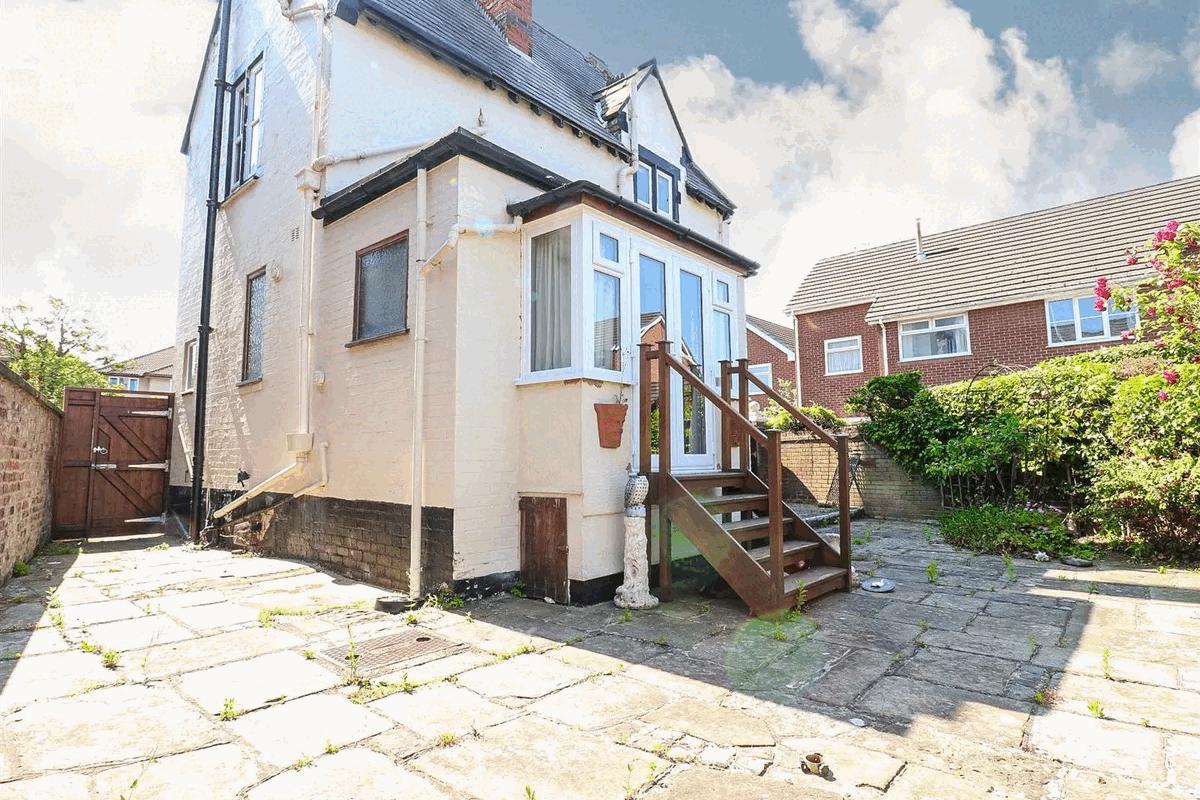
This four bedroom schoolhouse in Southport is on the market for £350,000. Set over four floors, the house was built in the 1860s as a Sunday school and has maintained plenty of original features. Take a tour here.
Recommended reads
We loved this piece by Laura Robertson in the Double Negative about TreeStory, “an ambitious Liverpool-based digital art project” using photography to document trees and the cohabitation of the humans and nonhumans who live among them.
In our new sister publication, The Londoner, Moya Lothian-McLean documents the fear and loathing of the capital’s dating scene. Is it really the “special hell” she describes? Let us know in the comments if free and single Liverpudlians feel our city is any better for budding romances…


Comments
Latest
Get ready: the Aloft trials are coming
Michael Heseltine 'saved' Liverpool. Didn't he?
Cheers to 2025
Searching for enlightenment in Skelmersdale
How King Charles profits from Merseyside’s essential public infrastructure
Ferries, cargo ports, even sewage pipes: land obtained in feudal times is still benefitting the crown in the 21st century